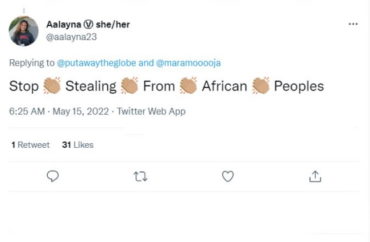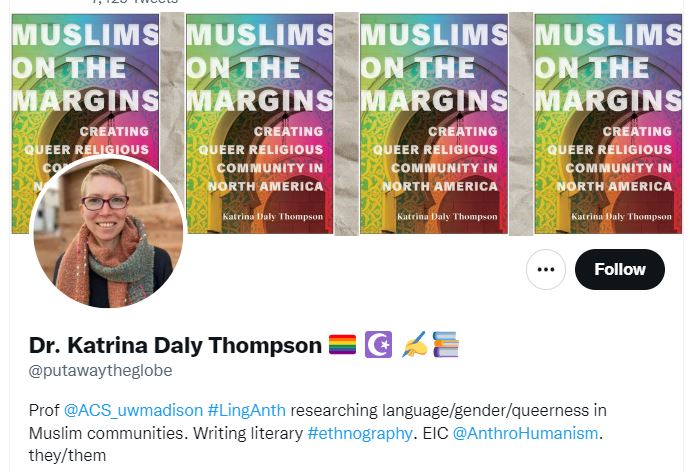
UPDATED
African Studies Review has said it will not remove paper
Two white Africanist scholars were heavily criticized on social media recently by many of their colleagues over a paper they wrote on decolonization, citing concerns over “white saviorism” and “frontierism.”
Their detractors argued the two scholars were racially insensitive and some academics even sent the publisher, The African Studies Review, an open letter requesting the paper be retracted.
Katrina Daly Thompson, a humanities professor at the University of Wisconsin-Madison, and Kathryn Mara, a post-doctoral fellow at UW-Madison, coauthored the controversial paper, “African Studies Keyword: Autoethnography,” published in May.
The paper argues for the validity of autoethnography, a research approach defined by the American Psychological Association as “academic writing that draws on and analyzes or interprets the lived experience of the author and connects researcher insights” to facets of social study.
In other words, autoethnography deemphasizes objectivity, allowing scholars to incorporate their own experiences as material within research.
Thompson and Mara argued autoethnography can help scholars decolonize the study of Africa. In the paper, they acknowledged their whiteness, but implied they can still contribute to the field.
Decolonization is a growing focus in academic fields involving the African diaspora. The website Racial Equity Tools explains decolonization as an effort to undo “the ongoing colonialism and colonial mentalities that permeate all institutions and systems of government.”
 Thompson (pictured), in the paper, also argued that her marriage to a Swahili man granted her “a near-insider perspective” on local marriage rites.
Thompson (pictured), in the paper, also argued that her marriage to a Swahili man granted her “a near-insider perspective” on local marriage rites.
But the open letter criticized the paper as contradictory to the aims of decolonization.
“Instead of actually being mindful of power and positionality, the authors instead co-opt autoethnography–a methodology that should be used to advocate empowerment within postcolonial discourses–to grant themselves authority to speak for African people,” it stated.
By speaking on behalf of Africans, Thompson and Mara strip away the voice and agency decolonization intends to return to indigenous peoples, it argued.
“This paper is written for a Global North audience while erasing and appropriating African scholarship and reducing African people to native informants. It propagates odious tropes that have bedevilled the field of African Studies both through methodology and pedagogy such as ‘white saviorism’, and ‘frontierism’,” the letter continued.
The spate also played out on Twitter. Responding to a post by Professor Thompson announcing the paper’s publication, one user said “Stop 👏🏽 Stealing 👏🏽 From 👏🏽 African 👏🏽 Peoples.”
https://twitter.com/putawaytheglobe/status/1525152134521573378
Another user, scientist Ruby Zelzer, quipped “so who is going to fund my next paper where I talk about my work in white studies and becoming a white woman, after I as an African woman married a European man and now I know all about white people things. Oh does that sound ridiculous? Because the white people wrote this [paper].”
So who is going to fund my next paper where I talk about my work in white studies and becoming a white woman, after I as an African woman married a European man and now I know all about white people things. Oh does that sound ridiculous? Because the white people wrote this…. pic.twitter.com/G4ZAzmOFoY
— Dr. Ruby (@PaperWhispers) May 15, 2022
Critics also raised ethical concerns about the way Thompson conducted research. The open letter alleged Thompson’s work encourages exploitative methods, which violate informed consent and confidentiality.
Pressure from the open letter and social media users notwithstanding, The African Studies Review refused to retract the article.
In screenshots of a response by the journal posted online, its editors explained that the paper did not infringe on commonly used guidelines created by the Committee on Publications Ethics.
“Any type of withdrawal beyond these guidelines is a form of academic censorship that the ASR cannot countenance,” the statement read.
In response, Professor Thompson tweeted “I’m pleased to see @ASRJournal’s strong support for our article & condemnation of the attacks we’ve received for the past two+ weeks.”
https://twitter.com/putawaytheglobe/status/1531599446835875842
Critics expressed dismay at the decision.
UDADISI, a black studies association, called the ARS’s verdict “Audacious. Arrogant. Authoritarian. Autodefensive” in a tweet.
Audacious. Arrogant. Authoritarian. Autodefensive.
👇🏿#Author(s) | @ASRJournal/@ASANewsOnline👇🏿 pic.twitter.com/TligkVPKut
— UDADISI (@Udadisi) May 31, 2022
Thompson and Mara, in the paper, argued that “autoethnography creates opportunities to consider and attend to power dynamics in research, making it a fruitful methodology for Africanists to employ as they engage in questions of intellectual decolonization.”
“We believe that such initiatives [promoting autoethnography] will not only increase intellectual understanding but also undermine attempts at detachment and claims of objectivity in ways that will ultimately help decolonize our scholarship,” they concluded.
Thompson did not respond to a request for comment in August from The College Fix, and Mara could not be reached for comment.
Mara also has deleted her Twitter account. Prior to its deletion, she posted she was proud of the paper and appreciated the mentorship of Thompson, according to her tweets reviewed by The College Fix prior to the account’s deletion. After criticisms of the paper emerged, Mara expressed some sympathy with them.
Asked for comment by The College Fix, Olúfémi Táíwò, author of the new book “Against Decolonisation: Taking African Agency Seriously,” declined to wade into the controversy.
The crux of his argument in his book is the decolonization movement destroys the agency of Africans as a people moving forward, perpetuating the victim mentality.
Táíwò, a professor of African political thought at Cornell University, argued in his book that “decolonization activists are locked into a black-and-white division in which the colonized and the colonizers must remain forever apart,” according to The Wall Street Journal.
Editor’s note: This article has been amended.
MORE: Check out The College Fix’s Campus Cancel Culture Database
IMAGES: Twitter screenshots





Please join the conversation about our stories on Facebook, Twitter, Instagram, Reddit, MeWe, Rumble, Gab, Minds and Gettr.